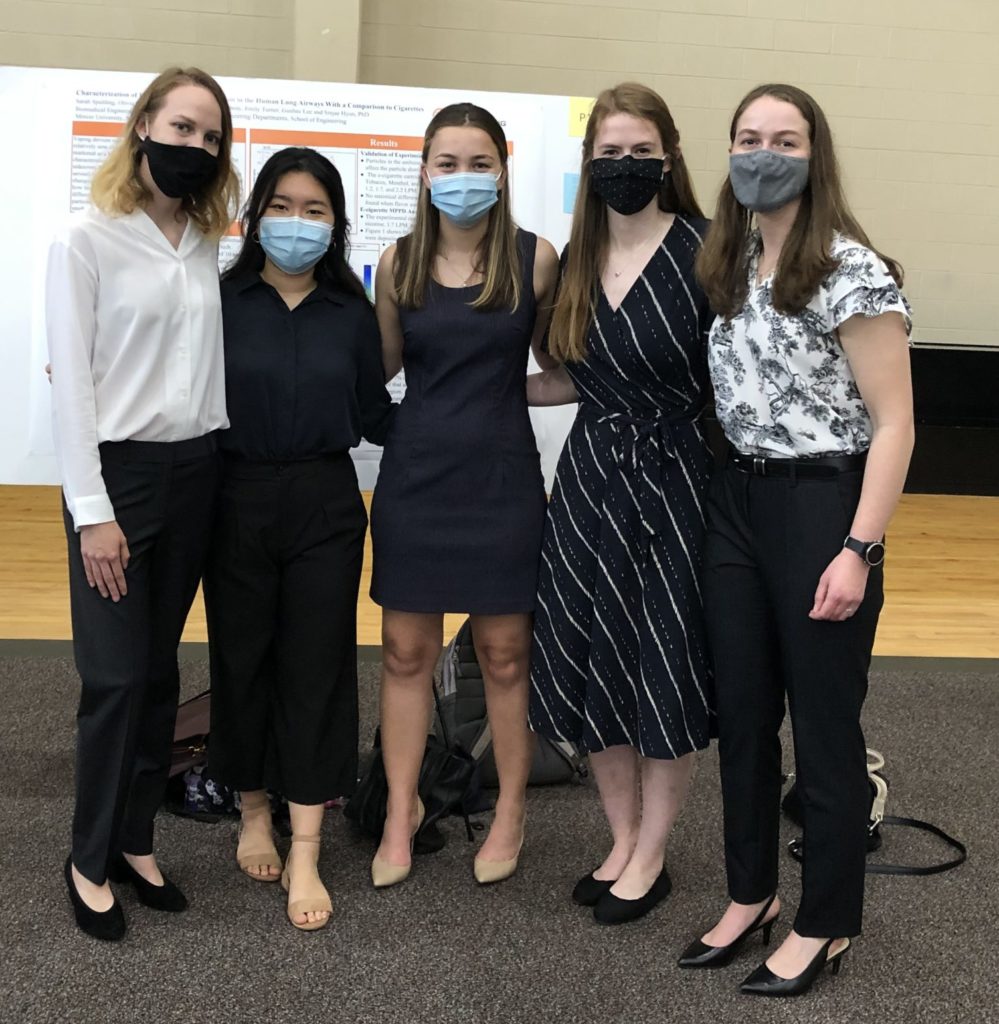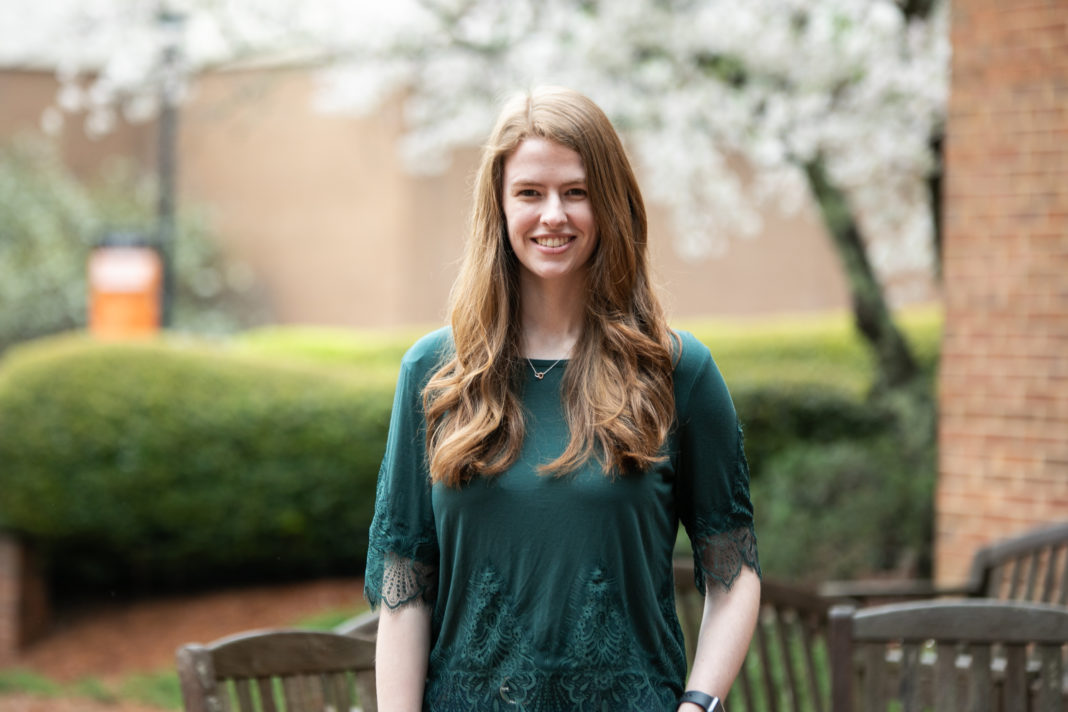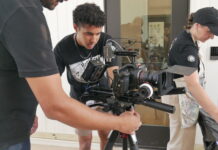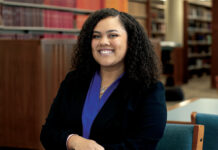A Mercer University education along with a Goldwater Scholarship win have expanded the possibilities for Sarah Spalding’s future.
The biomedical engineering major is one of three juniors in the School of Engineering to recently be awarded the scholarship for the 2021-22 academic year. The other Mercer winners are Sara Binet and Ebonye Smith.
“It’s a very big deal. It really validated all of the hard work,” Spalding said. “It’s the most prestigious award an undergraduate can win in STEM (science, technology, engineering and math). Just having that on my resume opens a lot of doors. It’s really a launching board.”
Spalding has been involved in research with Dr. Sinjae Hyun, professor of biomedical engineering and director of M.S.E. and associated M.S. programs. She joined Dr. Hyun’s research lab in 2019 after participating in his Mercer On Mission (MOM) Korea trip, where participants taught English and robotics to North Korean refugee children, worked on 3D modeling and printing projects for the blind, and assisted with an excavation project to find the remains of soldiers who fought during the Korean War.
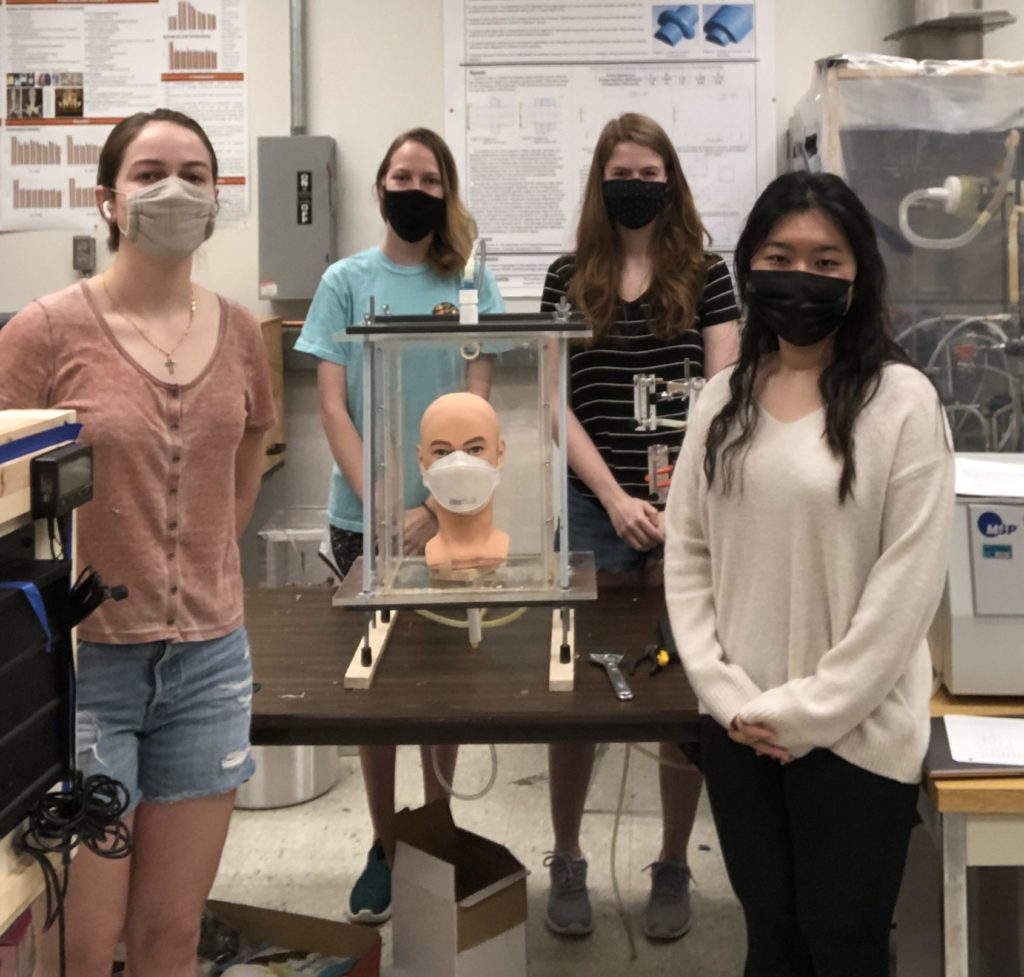
“It was amazing,” Spalding said. “We were working with North Korean refugees, and to hear their stories, be able to help them and do something to make a positive impact on their life was really incredible.”
Dr. Hyun said Spalding was a vital part of the MOM team and is a leader who mentors other students on his research team.
“Sarah demonstrated her leadership as a student-teacher, and her dedication and commitment to her MOM team members were unparalleled. Her open-minded perspective and strong communication skills aided in her being an exemplary member of the team,” he said. “One might say that she is an undergraduate student with a graduate student attitude.”
Spalding’s first research project with Dr. Hyun was an inhalation study that compared e-cigarettes to regular cigarettes. The team built a lung model and used it to look at the amount of aerosol particles that stay in the lungs after using the two types of cigarettes.
When the COVID-19 pandemic began, Dr. Hyun and his team shifted their focus to finding the best alternatives to N95 masks. They tested the filtration efficiency of masks made of various materials and determined that triple-layer cotton masks and surgical masks were the best, Spalding said.
They also discovered the importance of the fit of the mask. While a proper-fitting triple-layer cotton mask or surgical mask is comparable to an N95, an ill-fitting one is very ineffective. They shared their findings with local hospitals and hope to have their research published this summer.
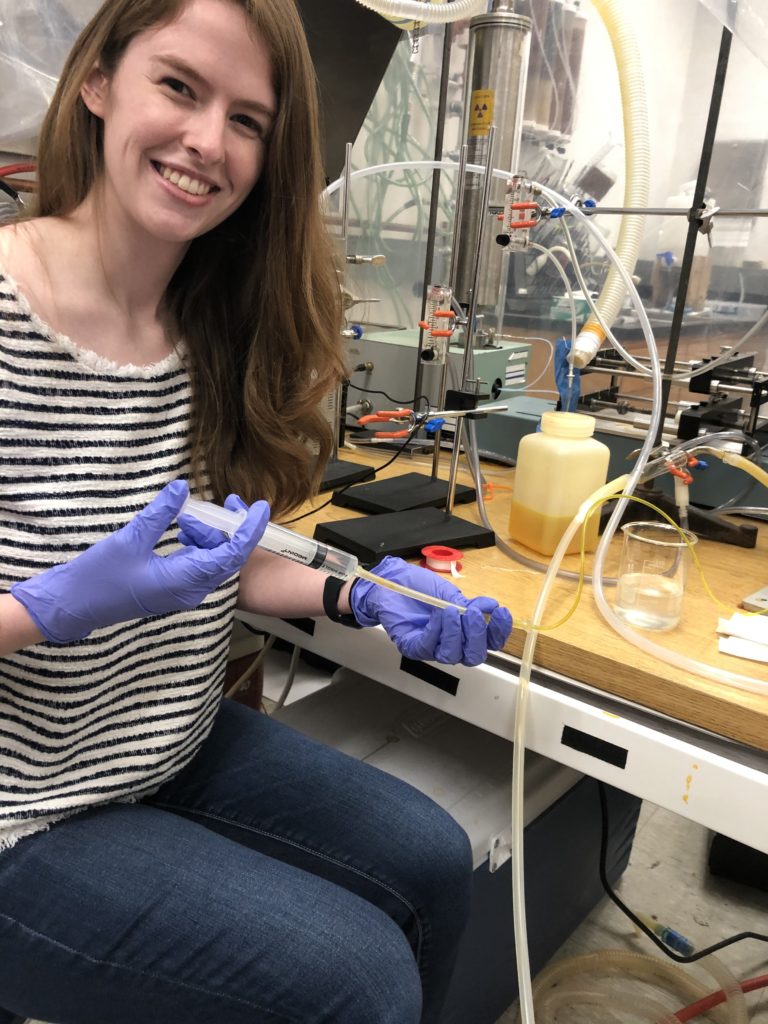
“Sarah is in the top 2% of students (based on 500 students over the past five years) whom I have taught and mentored at Mercer University, and she is poised to become a successful biomedical engineering researcher,” Dr. Hyun said. “Sarah is more than deserving of the Goldwater Scholarship, and there is no doubt in my mind that she is qualified to receive it. I am thrilled for her and excited to see where this opportunity takes her.”
In addition, Spalding has been involved in scanning and modeling work for the 3D yearbook project for Georgia Academy for the Blind. Since 2018, Dr. Hyun and Dr. Scott Schultz, senior associate dean and professor of industrial engineering, have led the initiative to create custom yearbooks featuring 3D-printed face models for seniors graduating from the Macon school.
The team is in the process of adding a sound component to the latest yearbooks. When one of the 3D-printed faces is touched, a recording will play of that student talking.
“She’s a motivated student and always willing to go the extra mile to learn the material and find out what she needs to know to be prepared,” said Dr. Joanna Thomas, assistant professor of biomedical engineering and a mentor to Spalding. “Winning the Goldwater Scholarship is an excellent thing for students to have on their resume going forward. It really does provide them with a great stepping stone to the top graduate programs out there in biomedical engineering.”
This summer, Spalding will be doing nanotechnology work through a research program at Georgia Tech. After finishing her undergraduate degree, she plans to go to graduate school and then pursue a Ph.D., perhaps related to pulmonary diseases and tissue engineering.
“Because of the foundation that Mercer has provided me, I can go in whatever area I want. It’s such a broad field,” she said.
